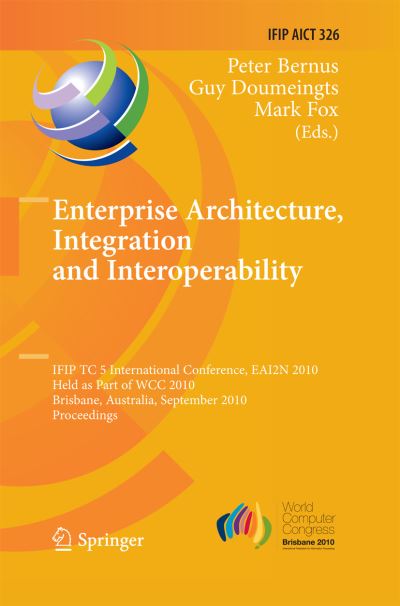
Enterprise Architecture, Integration, and Interoperability and the Networked enterprise have become the theme of many conferences in the past few years. These conferences were organised by IFIP TC5 with the support of its two working groups: WG 5. 12 (Architectures for Enterprise Integration) and WG 5. 8 (Enterprise Interoperability), both concerned with aspects of the topic: how is it possible to architect and implement businesses that are flexible and able to change, to interact, and use one another's s- vices in a dynamic manner for the purpose of (joint) value creation. The original qu- tion of enterprise integration in the 1980s was: how can we achieve and integrate - formation and material flow in the enterprise? Various methods and reference models were developed or proposed - ranging from tightly integrated monolithic system - chitectures, through cell-based manufacturing to on-demand interconnection of bu- nesses to form virtual enterprises in response to market opportunities. Two camps have emerged in the endeavour to achieve the same goal, namely, to achieve interoperability between businesses (whereupon interoperability is the ability to exchange information in order to use one another's services or to jointly implement a service). One school of researchers addresses the technical aspects of creating dynamic (and static) interconnections between disparate businesses (or parts thereof).
| ISBN: | 9783642423352 |
| Publication date: | 9th September 2010 |
| Author: | Peter Bernus, Guy Doumeingts, Mark Fox |
| Publisher: | Springer an imprint of Springer Berlin Heidelberg |
| Format: | Paperback |
| Pagination: | 175 pages |
| Series: | IFIP Advances in Information and Communication Technology |
| Genres: |
Network hardware Expert systems / knowledge-based systems Software Engineering Data warehousing Data mining Information retrieval Applied computing Databases |